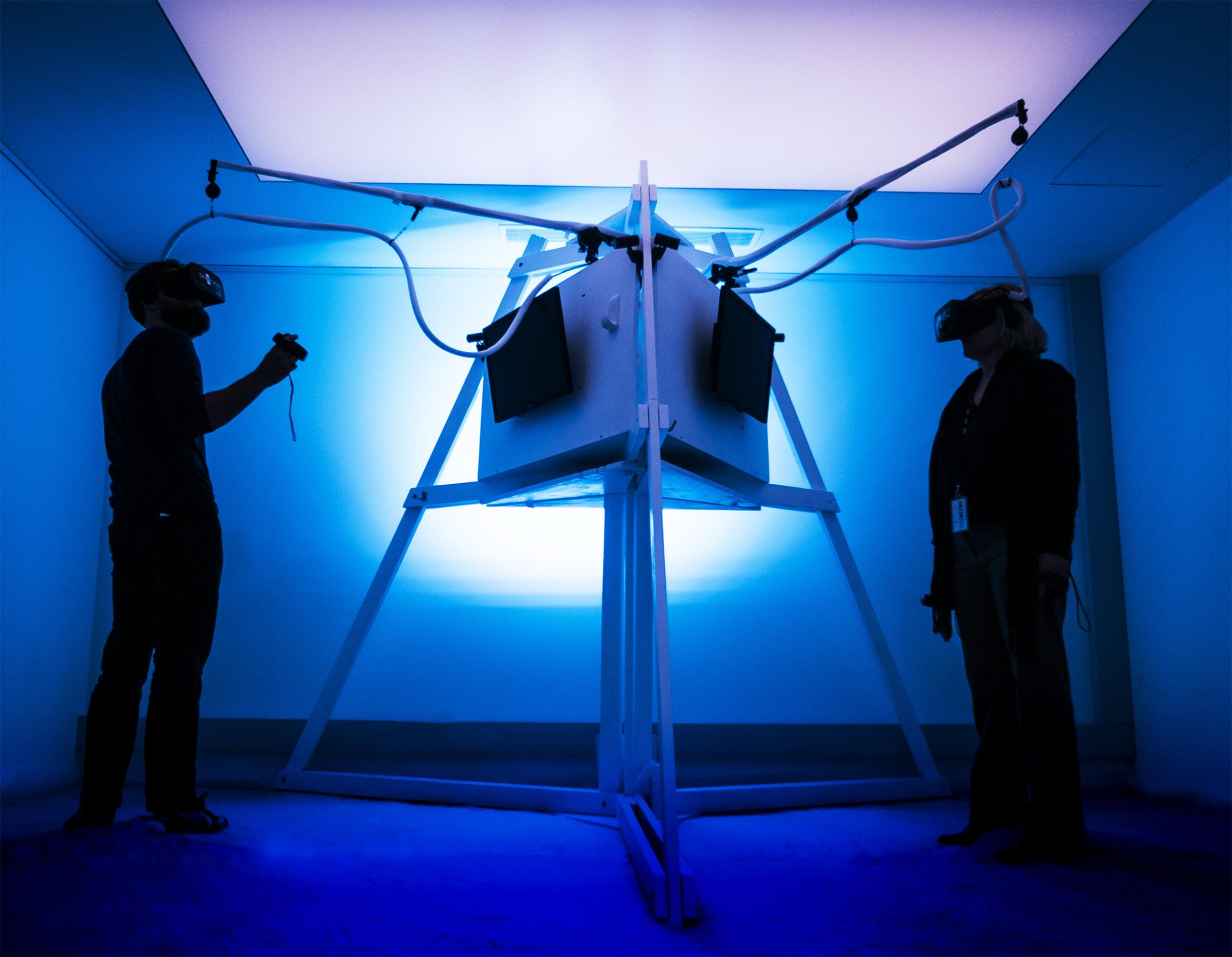Jon Stewart: Stop demonizing the other side

During a New York Times Talk, Jon Stewart gave his most in-depth thoughts yet on a number of topics that his fans wanted him to comment on. The comedian and now-director Stewart weighed in on the division in the country brought on by the election, Donald Trump, the media, and how to move forward.
The occasion for the talk was the release of the new book The Daily Show (The Book): An Oral History as Told by Jon Stewart, the Correspondents, Staff and Guests. Stewart and Chris Smith, the author of the book, were interviewed by the Times TV critic James Poniewozik.
With his usual self-deprecation, Stewart started off by satirizing the effect his own show could have had on influencing the election, as some suggested his absence during this election cycle was somehow responsible for Clinton’s loss.
“We were the destroyers of men and creators of empires. I think that generally is satire’s role and has always been: the rise and fall of civilization at our whim,” Stewart said, adding, “I would have probably allowed Hillary to come a little closer in the Rust Belt, but I still think I would have given Michigan to Trump. I had a little something going on where I was going to give [Al] Gore Florida. There was a bit we had planned that was going to hand Florida to Gore.”
He continued that theme by questioning whether exposing or making fun of cultural issues has real significance, because it’s not the same as actually wielding political power.
“I think of one of the lessons of this book and what we’re talking about is to put satire and culture in its proper place — that controlling a culture is not the same as power. And that while we were all passing around really remarkably eviscerating videos of the Tea Party ― that we had all made great fun of ― [they were] sitting off a highway at a Friendly’s taking over a local school board,” said Stewart. “And the lesson there is, as much as I love what we did and I liked it, there is a self-satisfaction there that is unwarranted, unearned and not useful.”
He saw the obsession of the media with the way-too-long Presidential campaign instead of reporting on actual issues of “governance” as contributing to the sharp division in the country.
“How long is the campaign? A year and a half? I assume [television media is] talking right now about who’s running in 2020. They don’t give a flying fuck about governance, they care about campaigns and that’s where the fun is for them. That’s devastating. And not only is it devastating news-wise, it’s devastating to all of us.
Because if a campaign is too long, the fault lines between different tribes in our societies solidify. A campaign is 18 months long and you’ve got to choose a side for 18 months and then a disagreement becomes an argument and an argument becomes a fight and a fight becomes a feud and a feud becomes a war.
And those lines harden to the point where you can’t get past that … Because what you become is just teams. And the campaigns are just too long. Have you ever been in a parking lot after, like, a Giants game and it’s between a guy in a Giants jersey and a guy in, like, a Cowboys jersey? They will fight. They will punch each other. What is that fight? Like, “Hey! Your shirt, it’s got a star on it. It’s supposed to have an NY. I’m going to have to punch you in the face.” There’s no reason for that, other than basic human primitive nature, and if we turn our discourse into that, then that’s what it will become.”
According to Stewart, one big way to start healing the country and mending the division would be to stop demonizing the other side. He used his work with the first responders for perspective.
“This has to stop. This idea that we’re all … that our team is perfect and the other team is demons. And this is not like a Kumbaya, let’s all get along.
Let’s fucking fight, but let’s fight with precision and integrity, and not with just demonization.
And I’ll say this, I know a lot of first responders. I spent a lot of time in that community. A shitload of them voted for Trump. The same people that voted for Trump ran into burning buildings and saved whoever the fuck they could no matter what color they were, no matter what religion and they would do it again tomorrow. So, if you want to sit and tell me that those people are giving tacit approval to an exploitative system ― I say, “OK, and would you put your life on the line for people who aren’t like you? Because they did.” I get mad about this stuff.”
As far as Donald Trump himself, Stewart pointed to the incongruities between Trump’s campaign persona and his appointments.
In the campaign, Trump portrayed Hillary Clinton as “an unqualified Secretary of State because the way she handled classified material. His selection for Secretary of State will be David Petraeus, who pled guilty to mishandling classified material. He said she was unqualified because she gave a speech to Goldman Sachs. His Secretary of the Treasury is somebody from Goldman Sachs. We’re in post-accountability.”
While he doesn’t think the media was somehow responsible for the election of Donald Trump, he saw its lack of in-depth coverage of the issues and focus on distracting tweets as contributing.
“What’s the biggest story today? Donald Trump tweeted that he won the popular vote and flag burners should lose their citizenship. [It’s] just some f—ing thing he tweeted, and it’s dominating the 24 hours,” Stewart said. “But does anyone here understand what NAFTA is and what it did and what it meant to jobs because everyone seems to feel like that was the lever by which the election was won or lost. But if you watch the 24-hour news networks, you have no idea what that means. Or what is it? How many jobs were lost? Were jobs gained? Watch the post-election analysis. Everyone’s talking about NAFTA and working-class whites. That seems to be the most important issue now in the entire election. If you were to look back on the election coverage, I would love to know how much of it was geared towards letting people understand, even, forget about NAFTA, what are trade agreements? What do they even mean? What does it mean when Donald Trump says, ‘This is a disaster.’ Is it a disaster? What is it? Or is automation really at issue with a lot of these job losses? What’s the balance?”
He also saw mainstream media being complicit in the spread of fake news, calling it out for becoming “an information-laundering system“.
“Rumor becomes fact becomes canon really quickly in this system at a speed that you can’t imagine,” said Stewart. “What happens is someone creates a conspiracy theory on the web and then news organizations cite a website that is in no way credible for that piece of information and they put it on their news site and later on, five days later, when somebody is doing a story about that and they do a search, that comes up but what doesn’t come up is the annotation of where that came from and where the source was so that piece of information has been laundered. It’s free-floating. And that gets placed into a story about that subject without the qualifying radioactive isotope that tells you it’s from a bullshit source and then it goes on. And from now on, whenever anyone does a story about that, credible places not credible places, that piece of information is now accepted as fact and passed around and used as an example of something real that has happened. If the news organizations really want to tackle fake news, they need to look at where they are aggregating their information. Stories that were sent from a Macedonian teenager to grandmothers’ email accounts didn’t sway this election. News organizations that lost their credibility and authority because they were not careful enough about introducing toxic and poisoned information and laundering it into a system devalued the authority of real supposed news sources to the point where people are frustrated enough to elect a man who stands for what he stands for.”
Addressing those who might be fearful of the Trump Presidency, Stewart encouraged them to get involved in the issues they care about, particularly those most vulnerable to the new policies.
“There will be real ramifications to this election,” he said. “Who are the vulnerable people? Where are the vulnerable societies? And not in tweets, in practice, in reality. If he tries to deport DREAMers, then that’s where everyone has to go, to protect them. If he tries to make a Muslim registry, then everyone has to go there and help them. You have to find the people that are going to be most in jeopardy, I think, and put your attentions on them because now it’s about reality.”
Stewart also argued that a President Trump “can’t ruin everything”.
“We’re still the same country. Obama didn’t change and fix everything, and Trump can’t ruin everything. If we’re that vulnerable to one guy… That guy? That’s how we’re going out? This incredible experiment in liberty and democracy that we fought and died for is going to go out with that guy? That can’t be how this story ends.”
Cover photo: Jon Stewart attends the Montclair Film Festival 2016 on May 7, 2016 in Montclair City. (Photo by Dave Kotinsky/Getty Images for Montclair Film Festival)





